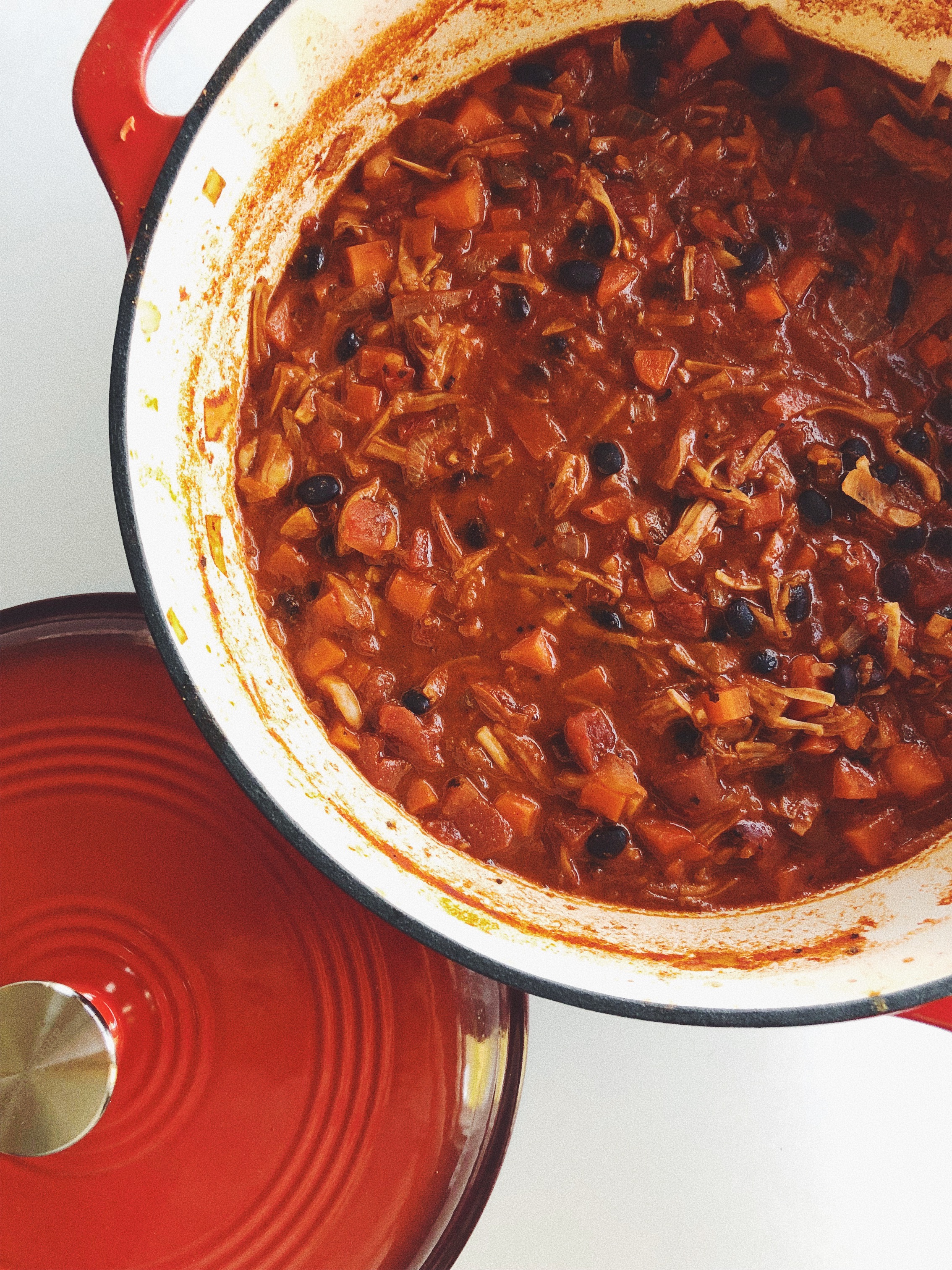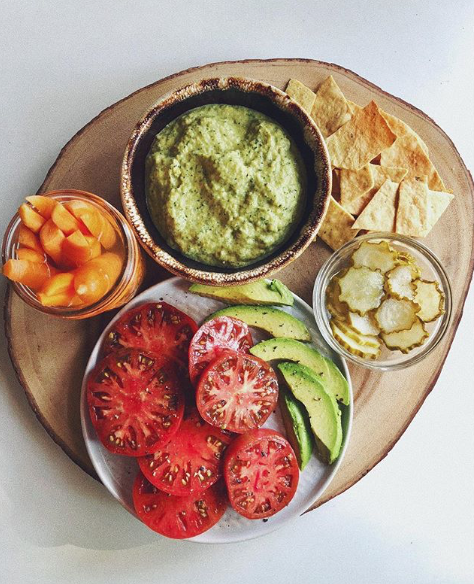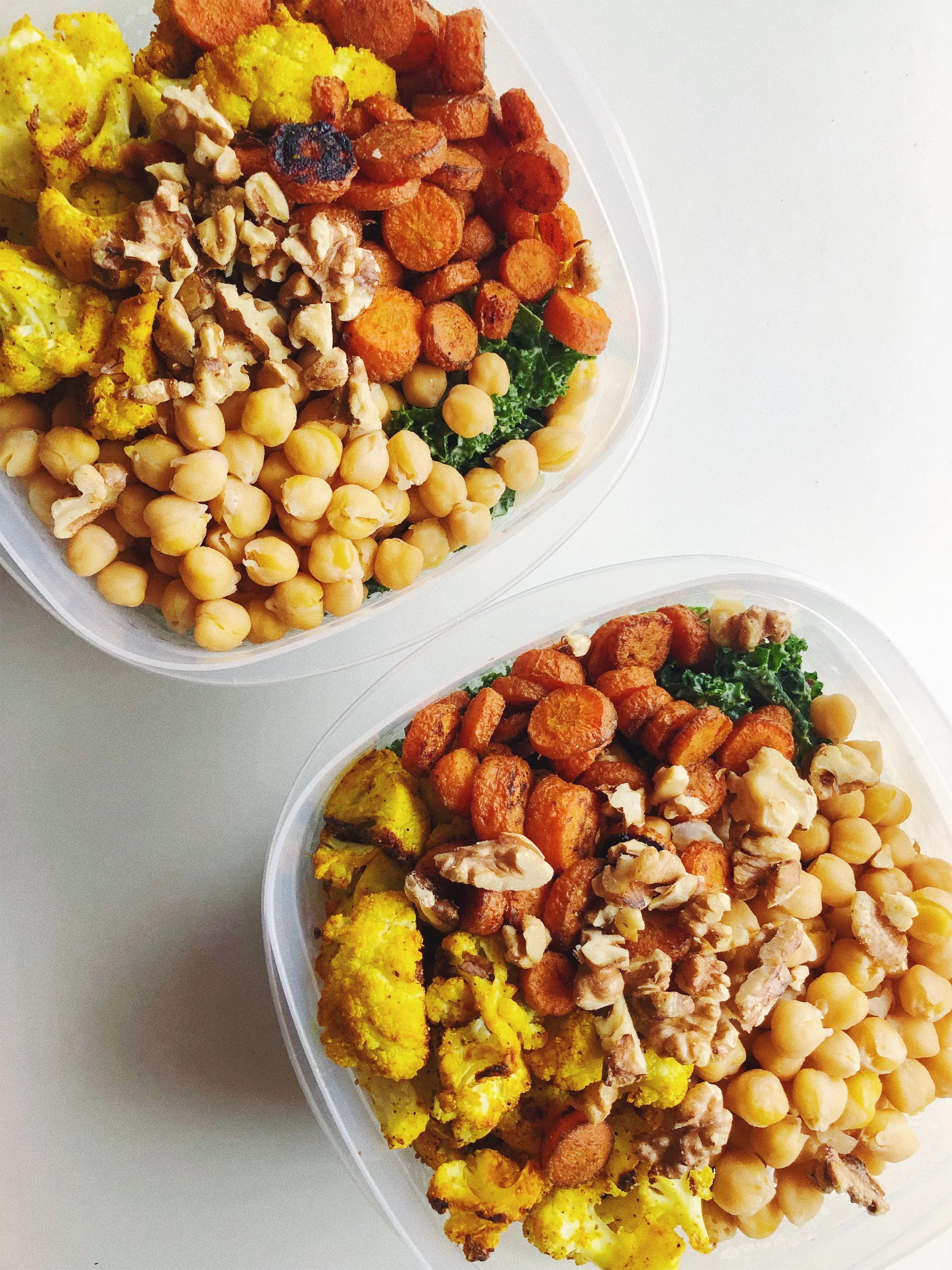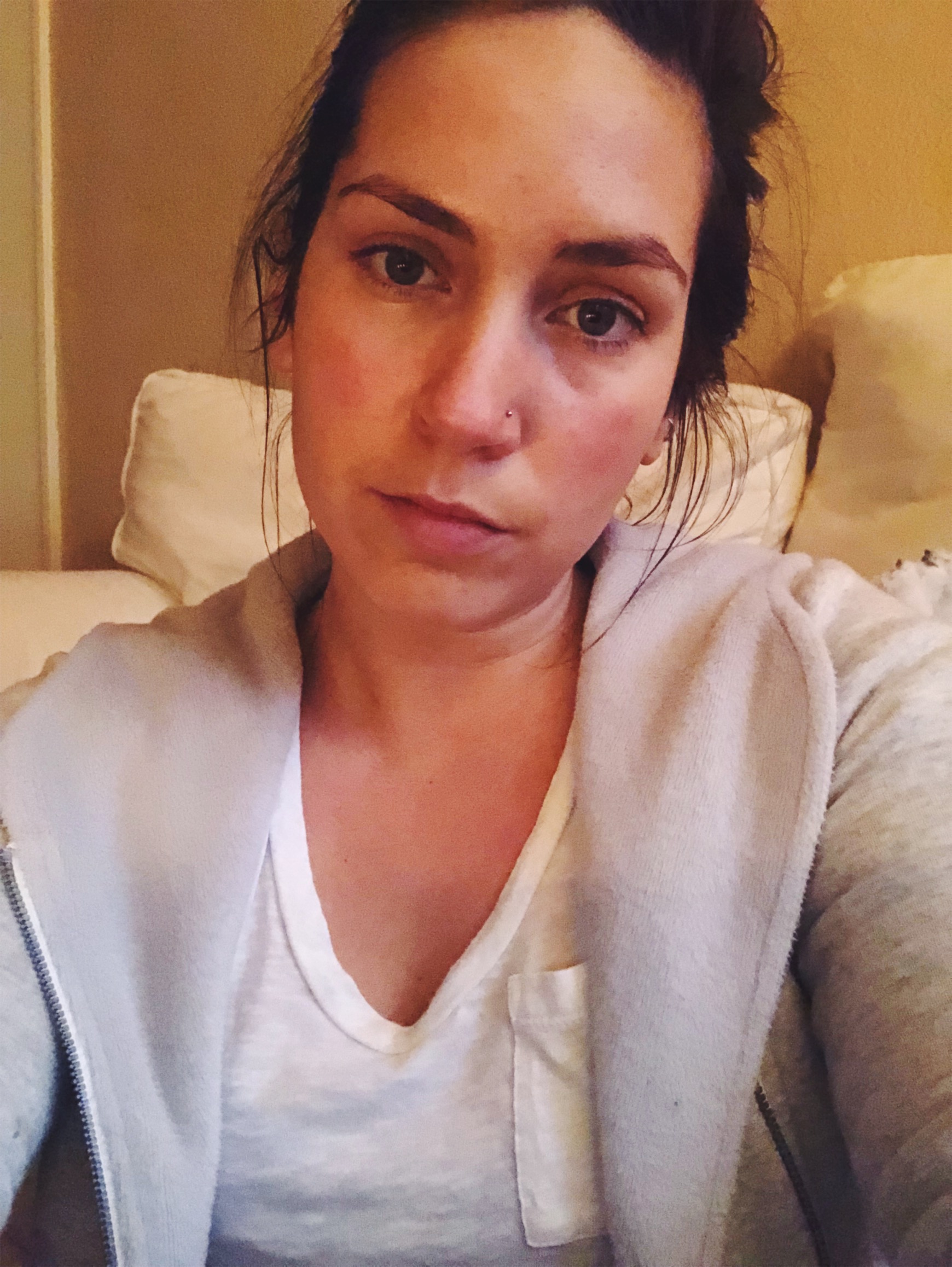I’m going to be real with you - if you want to eat better, having a plan is absolutely key. Meal prep is a big part of that plan. Investing a little bit of time in planning and preparing your meals ahead of time is absolutely, one hundred percent worth it.
Now, this doesn’t mean you have to cook for hours to prep your meals. There are different levels of meal prep, and I’m going to cover them in this post. We’re all different - some of us enjoy cooking, some of us really hate it and would rather do anything but cook. It’s okay - there’s strategies for all of us!
For those who like to cook…
For those of us who like to cook, there’s two main ways to meal prep. You’re either going to be preparing the whole meal at once OR you’re going to do the component method. Both are totally valid and awesome. If you don’t mind eating basically the same thing a few days in a row, the Full-On-Meal Method is probably best for you. If you like to have more flexibility with your meals, I would recommend the Component Method. I’m personally a big fan of the Component Method, and that’s how I most often meal prep.
The Full-On Meal Prep Method
All I mean by this is that you’re preparing multiple servings of the same meal. This might look like several portions of a composed meal (ie - a veggie burger with sweet potato fries and salad) or a casserole or soup. I personally find casseroles to be one of the easiest ways to achieve the Full-On Method. This is best if you’re looking for minimal dish-dirtying and clean up and if you don’t want to have to think about your meals later on - they’ll just be ready to grab, heat and eat!
My Sage + Thyme Spaghetti Squash Bake is a great, easy example of the Full-On Method.
The Component Meal Prep Method
This is my personal favorite way to meal prep. You basically prep all the components of a meal and then when it comes time to eat, you throw them all together. I like this method because it allows for flexibility. So you can make it the same way every time or leave some ingredients out or add some new ones you get from the store mid-week. It keeps it a little more fresh and exciting. I’m also a big fan of “bowls” - aka, just throwing a bunch of stuff in a bowl and calling it a meal! It’s how I eat most often and it works for me.
You’ll want to consider the following components - a protein - cooked and ready to go, 2-3 vegetables - cooked/prepped and ready to go, greens - washed, chopped and ready, grain or bean (optional), a healthy fat - avocado or nuts/seeds, and a dressing/sauce (the dressing could also be your healthy fat). So let’s look at some examples:
black beans + roasted sweet potatoes + salsa + avocado dressing + fresh cilantro
baked chicken + roasted broccoli + carrots cut into matchsticks + bok choy + almond butter ginger sauce
cooked ground beef + sautéed onions and peppers + chopped, washed romaine + creamy cashew ranch dressing
chicken sausage + cucumbers + tomatoes + olives + mixed greens + hummus
Another way I like to use the Component Method is by creating a simple soup or salad base that I can then change up each time I eat. For example, I love making a totally veggie chili (no meat or beans) and then throughout the week I can eat it as is if I want a light meal, add some avocado on top, top with a sausage or a fried egg, or serve with tortillas or chips. Same thing with a salad - I can make a kale salad with a tahini dressing and then roast some vegetables and a rotisserie chicken and then change up what I top the salad with all week.
For those who would rather not cook…
Don’t worry - you’re not doomed. With food brands becoming more and more conscious of health and ingredients, there’s plenty of good options. Grocery stores also provide pre-chopped vegetables which can be really helpful since chopping vegetables is often the most time consuming part of meal prep. Places like Whole Foods have hot bars where you can buy pre-cooked veggies. I would say reserve this for special circumstances because 1. it’s expensive and 2. as of now, Whole Foods still uses mostly canola oil to roast the vegetables for their hot bar, which is an inflammatory oil :( I do, however, fully endorse Whole Foods organic rotisserie chickens - which don’t use any oil.
Let’s look at some examples of some seriously minimal meal prep:
Siete Foods tortillas + Whole Foods organic rotisserie chicken and/or Better Bean Black Beans + mixed greens + organic salsa + guacamole (salsa and guacamole can be bought pre-made!)
Pre-zoodled zucchini noodles + organic marinara sauce + grass-fed ground beef or organic tempeh (all you have to do is brown the meat or tempeh in a pan, add sauce and zoodles!)
Organic chicken sausage + pre-chopped veggies + Primal Kitchen dressing (add sausage and veggies to a pan, sauté until brown and cooked, top with dressing)
Hope Hummus + pre-cut crudite + pita or tortilla chips (the ultimate lazy person’s dinner)
Amy’s Organic Soup + chopped avocado (so easy!)
Hopefully that gives you an idea of the types of foods to have on hand and how to easily prepare it! It’s more like “assembling” a meal from other healthy ingredients, and there’s no shame in that!
Other tips
Here are some other meal prep tips to help keep you on top of your food game:
Whenever you cook, make more than you need. I see no sense in cooking only two portions when it hardly takes any extra effort to cook four.
Freeze it! Make a huge batch of soup and freeze some extras for those busy weeks. You can also freeze casseroles pretty easily.
I love roasting a bunch of sweet potatoes to have on hand. You can bake them whole, in half or my personal favorite - in large coins. They’re super versatile - you can top with avocado or hummus for a savory snack or almond butter and banana for a sweet version. They also provide complex carbs and valuable nutrients. They can be the base of your meal or just bulk it up. Basically - just have some sweet potatoes around.
Chop vegetables ahead of time - even spending just 20 minutes or so chopping up onions, carrots, whatever else you have on hand - can make it so much easier to throw together a quick meal on even the busiest of nights. If you can’t stand chopping, look for the pre-cut stuff at Whole Foods or Trader Joes.
Know what you have - one of the biggest issues I see is that people forget about the food they prep! I highly suggest storing your prep in clear containers, with labels if that helps, in plain view in your fridge. If your fridge makes that hard to do, then keep a list on the outside of the fridge with a list of what you prepped that week.
No shame in frozen veggies - they’re awesome to have on hand for emergencies!
Make a glorified snack plate - honestly, one of my favorite ways to eat! Just make a big plate with your favorite snacks - maybe some deli meat, crackers, cut up veggies, dip, dried fruit and nuts. Any snack can be a meal if you eat enough of it :)
Canned fish - another one of my favorite staples. Mix a can of wild-caught salmon with some avocado and dijon mustard and it’s basically a meal! It also bulks up any salad.
What’s your favorite way to meal prep? Do you have a go-to recipe? Let me know below!




















